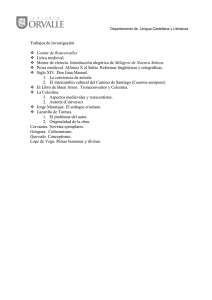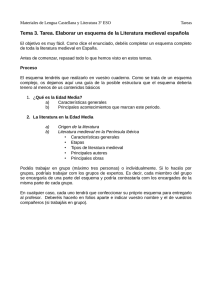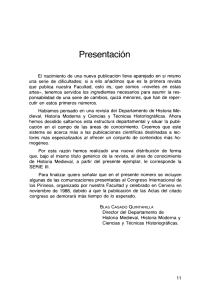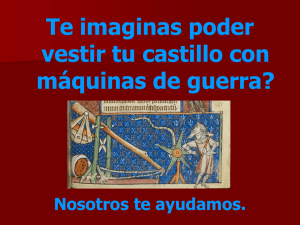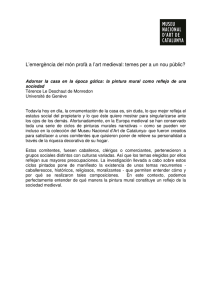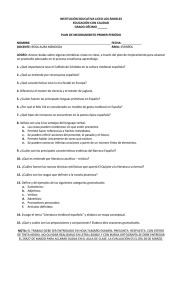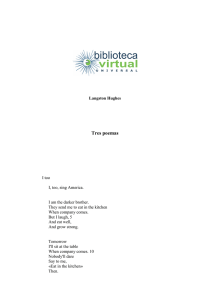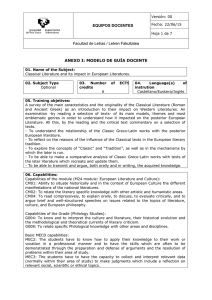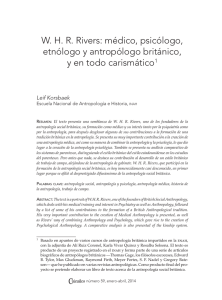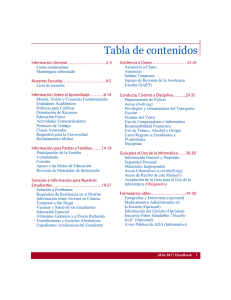Reading list for medieval Spanish literature
Anuncio
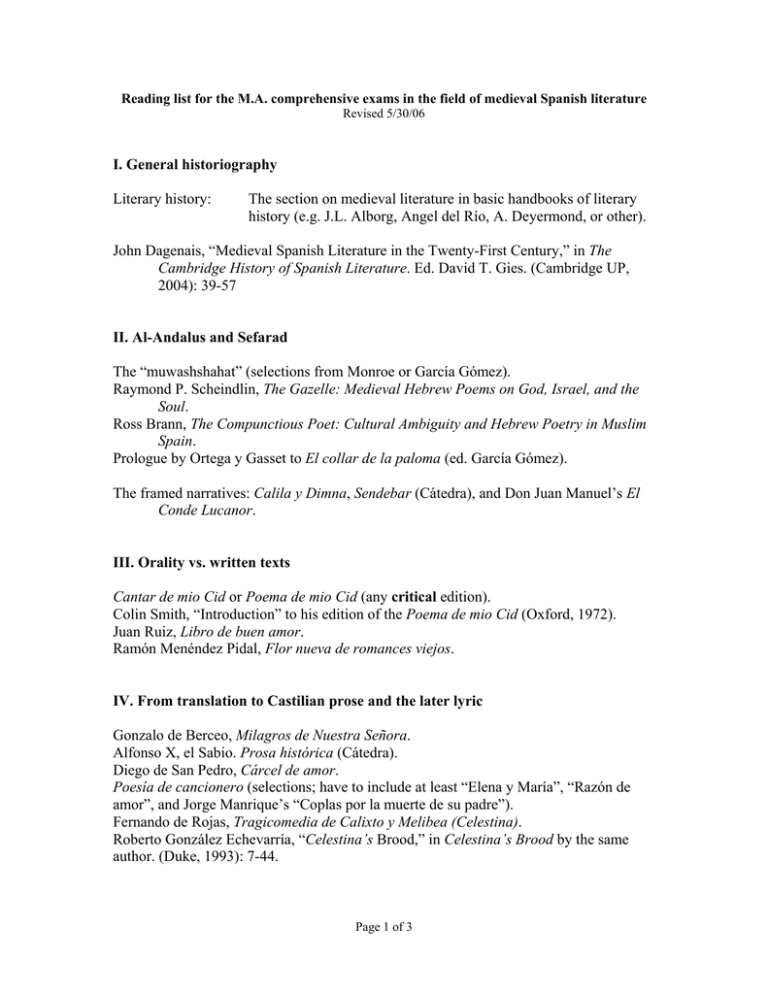
Reading list for the M.A. comprehensive exams in the field of medieval Spanish literature Revised 5/30/06 I. General historiography Literary history: The section on medieval literature in basic handbooks of literary history (e.g. J.L. Alborg, Angel del Río, A. Deyermond, or other). John Dagenais, “Medieval Spanish Literature in the Twenty-First Century,” in The Cambridge History of Spanish Literature. Ed. David T. Gies. (Cambridge UP, 2004): 39-57 II. Al-Andalus and Sefarad The “muwashshahat” (selections from Monroe or García Gómez). Raymond P. Scheindlin, The Gazelle: Medieval Hebrew Poems on God, Israel, and the Soul. Ross Brann, The Compunctious Poet: Cultural Ambiguity and Hebrew Poetry in Muslim Spain. Prologue by Ortega y Gasset to El collar de la paloma (ed. García Gómez). The framed narratives: Calila y Dimna, Sendebar (Cátedra), and Don Juan Manuel’s El Conde Lucanor. III. Orality vs. written texts Cantar de mio Cid or Poema de mio Cid (any critical edition). Colin Smith, “Introduction” to his edition of the Poema de mio Cid (Oxford, 1972). Juan Ruiz, Libro de buen amor. Ramón Menéndez Pidal, Flor nueva de romances viejos. IV. From translation to Castilian prose and the later lyric Gonzalo de Berceo, Milagros de Nuestra Señora. Alfonso X, el Sabio. Prosa histórica (Cátedra). Diego de San Pedro, Cárcel de amor. Poesía de cancionero (selections; have to include at least “Elena y María”, “Razón de amor”, and Jorge Manrique’s “Coplas por la muerte de su padre”). Fernando de Rojas, Tragicomedia de Calixto y Melibea (Celestina). Roberto González Echevarría, “Celestina’s Brood,” in Celestina’s Brood by the same author. (Duke, 1993): 7-44. Page 1 of 3 V. General readings María Rosa Menocal, “The Myth of Westerness in Medieval Literary Historiography.” In The Arabic Role in Medieval Literary History: A Forgotten Heritage, by the same author. (UPenn, 1987): 1-25. Luce López Baralt, Huellas del Islam en la literatura española. (pertinent articles) Richard Fletcher, The Quest for El Cid. Jorge Luis Borges, Siete noches (pertinent talks). Américo Castro, La realidad histórica de España. Ramón Menéndez Pidal, La epopeya castellana a través de la literatura española. Denis de Rougemont, Love in the Western World (pertinent chapters). SIGLO DE ORO SIXTEENTH CENTURY Garcilaso de la Vega, all in Rivers (Sonetos 1, 4, 10, 11, 14, 23, 29, 32; Canciones 3, 5; Elegía 2; Eglogas 1, 3) Fray Luis de León, all in Rivers (Odas 1, 3, 7, 8, 10, 18, 19, 22, Décima "Aquí la envidia y mentira") San Juan de la Cruz, all in Rivers ("Cántico espiritual," "Noche serena," "Llama de amor viva," Coplas 1, 2, 3, "El pastorcico," "Aunque es de noche") Lazarillo de Tormes El Abencerraje Lope de Rueda, El deleitoso (los pasos) SEVENTEENTH CENTURY Góngora, all in Rivers (Sonetos 53, 54, 69, 82, 86, 103, 109, 165, 166; Fábula de Polifemo y Galatea; Letrillas 19, 23, 48; Romances 17, 32, 49) Quevedo, all in Rivers (Poemas metafísicos 2, 3, 6, 8, 11; Heráclito cristiano 28, 29, 30, 31; Poemas Morales 52, 131, 132, 146; Poema religioso 151; Epitafios 212, 222, 274; Poemas Page 2 of 3 amorosos 294, 336, 337, 396, 448, 464, 471, 474, 477; Poemas satíricos 522, 545, 546, 668, 669, 679,779, 797, 850) ---, Vida del Buscón Cervantes, "Entremés del retablo de las maravillas" ---, Novelas ejemplares: "Rinconete y Cortadillo" ---, Don Quijote de la Mancha Lope de Vega, Fuenteovejuna Juan Ruiz de Alarcón, La verdad sospechosa Antonio Mira de Amescua, El esclavo del demonio Tirso de Molina, El burlador de Sevilla Calderón de la Barca, La vida es sueño Poetry text: Elias Rivers, Renaissance and Baroque Poetry of Spain. Page 3 of 3
